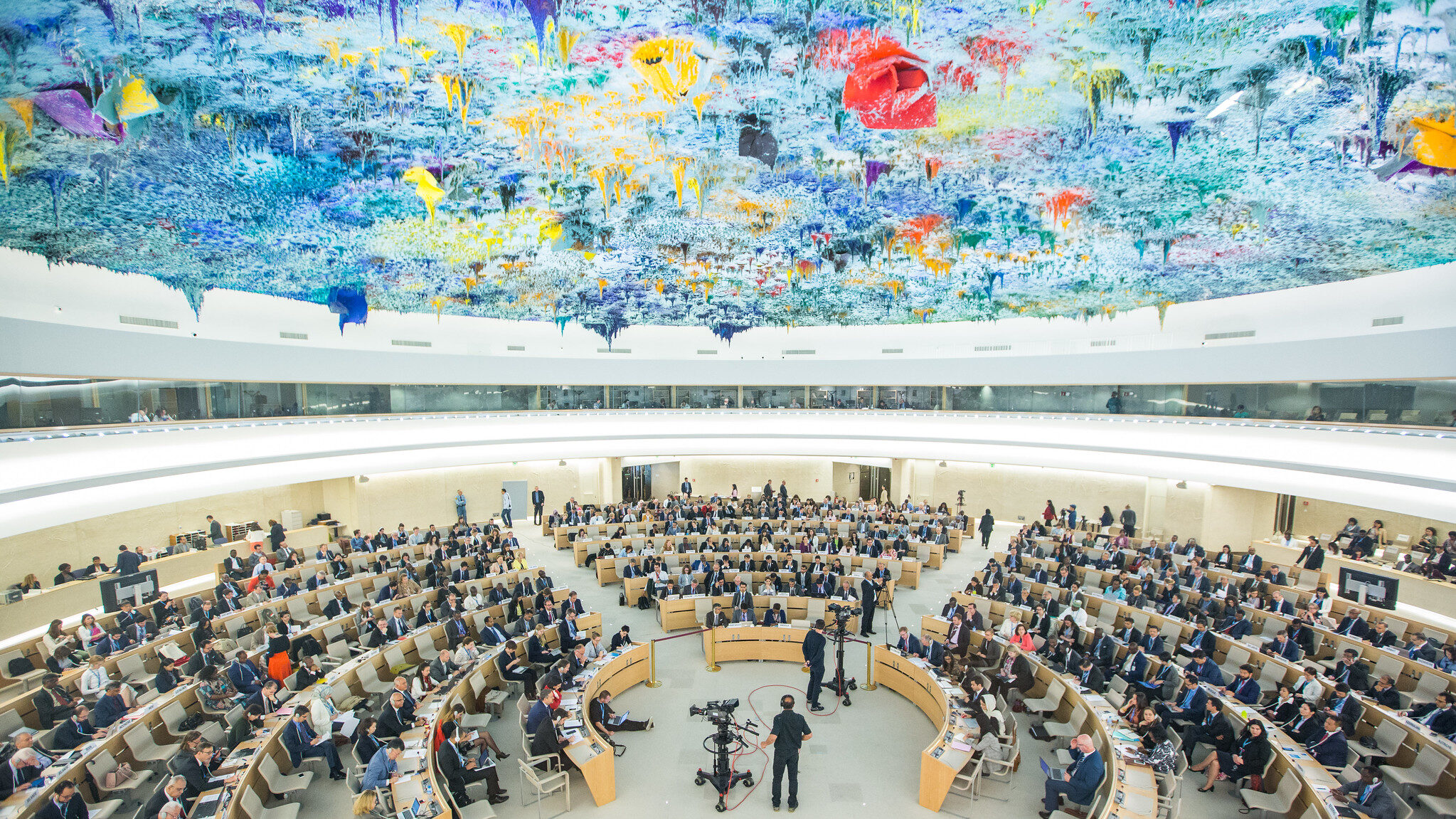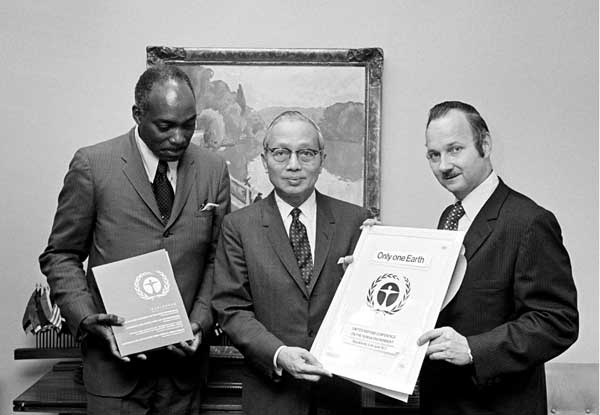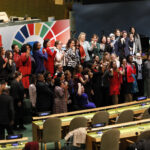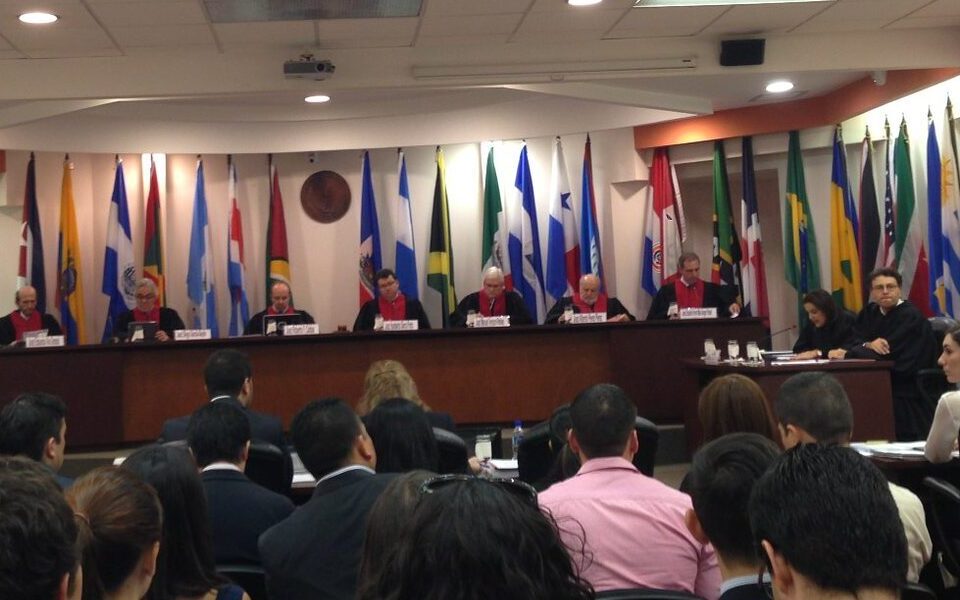Thirty-two years ago, the international community was asking itself a critical question: “Is the right to a healthy environment a universal human right?” This year, the world asked again, louder than ever, and the United Nations answered clearly and resoundingly. In a long-awaited vote at the UN General Assembly, 161 countries voted to recognize the right to a clean, healthy, and sustainable environment.
This historic victory for humanity was more than fifty years in the making, and CIEL has its fingerprints on many of the milestones leading to today, from the Rio Declaration on Environment and Development, to the creation of the first UN independent expert on human rights and environment, and beyond.

As with all ambitious, system-changing work, the path to secure the right to a healthy environment was long and rarely straightforward. It was a marathon, not a sprint. But by 2020, millions of people had joined the effort, and the pace of this work swiftly accelerated. We coordinated a global call to action that garnered support from more than 1,300 organizations — representing Indigenous Peoples, trade unions, women, youth, people with disabilities, and more — and this led to the swift adoption of the resolution by the UN Human Rights Council in 2021 and the General Assembly in 2022, with overwhelming support from States.
This recognition was only possible because of the persistent advocacy and pressure from civil society and Indigenous Peoples organizations who continually held decision makers and leaders accountable to deliver on their commitments, even when support seemed to waver.
The decision comes at a time of intersecting planetary crises — the climate emergency, the collapse of ecosystems, and toxic threats that are pushing us beyond planetary boundaries, with widespread impacts on human rights. This recognition provides one more tool for communities as they defend their rights and the environment, and opens new opportunities to strengthen accountability and environmental governance in the years ahead. And it represents the breaking of barriers: the recognition of this right means governments can no longer deny they have obligations to protect and respect it.
This victory moves us one step closer to making the law and international legal framework better serve ecosystems and communities. Now, we are pushing institutions, governments, and businesses to mobilize resources and take concrete action to make this right a reality, beginning with protecting environmental defenders and climate-vulnerable communities.
Human Rights and Environment Timeline

1972
Principle 1 of the Stockholm Declaration recognizes the fundamental right to live in an environment of a quality that permits a life of dignity and well-being.
1990
The Alliance of Small Island States (AOSIS) forms and highlights how their cultures, peoples, and very survival as nations are threatened by climate change. Former Maldives President declares, “Climate change is not just an environmental issue. It is a human rights issue.”

1992
UN Rio Principle 1 recognizes that “human beings are at the centre of concerns for sustainable development. They are entitled to a healthy and productive life in harmony with nature.”
1995
The Beijing Declaration and Platform for Action recognizes the deep intersections between the environment and human rights, and their particular implications for the rights of women.
2001
The Inter-American Court of Human Rights recognizes the property rights of the Awas Tingni Indigenous community’s traditional lands and illustrates an awakening around human rights violations involving economic, cultural, and social rights.

2004
The Inuit Circumpolar Conference files a landmark petition before the Inter-American Commission on Human Rights against the United States illustrating the connection between the effects of global warming and Inuit human rights.
2007
The Malé Declaration on the Human Dimension of Global Climate Change codifies the international community’s recognition of the fundamental right to an environment capable of supporting human society and the full enjoyment of human rights.
2008-2009
The UN Human Rights Council adopts a series of resolutions linking climate change to human rights impacts. Human rights emerge in the climate agenda at negotiations at COP14 in Copenhagen.
2012
The UN Human Rights Council establishes an Independent Expert on Human Rights and the Environment to advance the linkages between human rights and the environment. It selects Professor John Knox, a counselor to CIEL, as its first appointee.

2015
The preamble to the Paris Climate Agreement includes States’ responsibility to respect, protect, and promote human rights.
2021
The UN Human Rights Council recognizes the right to a healthy environment.
2022
The UN General Assembly adopts global recognition of the right to a healthy environment.
